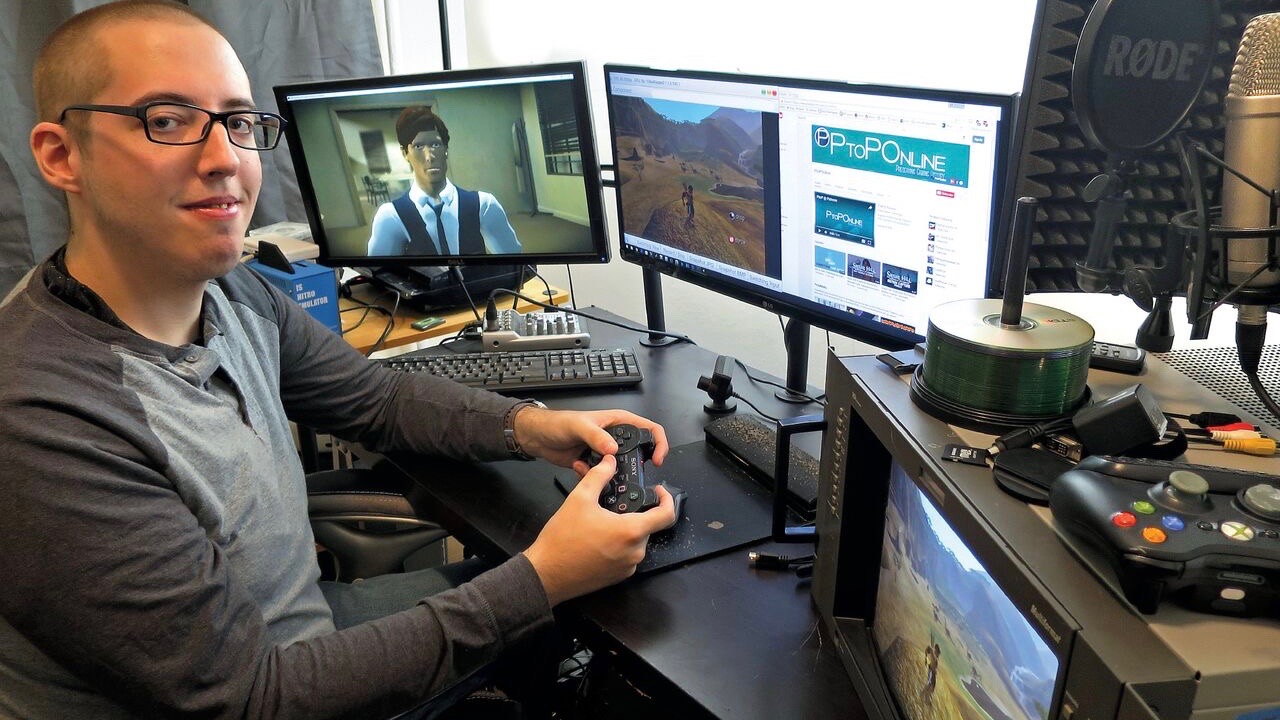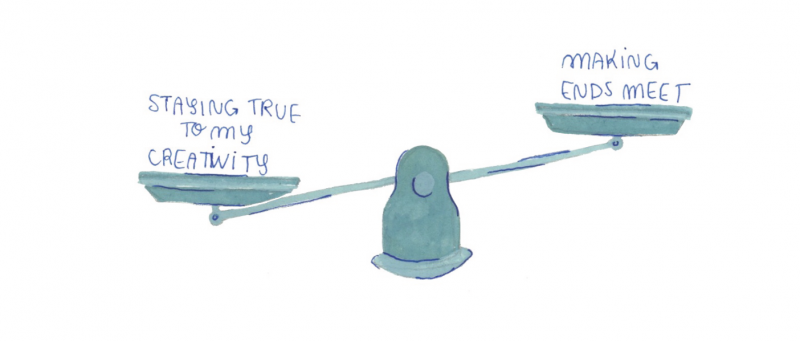Photos by Leif Zurmuhlen
Andrew Borman, a lanky wide-smiled Albany resident and a school librarian by day, uses his free time for something a bit more cutting edge, a little cloak and dagger. He’s tinkering with software, operating systems, scanning auctions, communicating with game designers and creating YouTube videos all in effort to preserve and catalogue video games that were never officially made available to the public. Games some companies would rather the public never see.
It’s a passion Borman has had since he was in high school. In summer 2005, Borman created his site PtoPOnline and has shared numerous unreleased projects with gamers across the world–from a prototype of Diablo on Gameboy, a Mega Bloks version of Halo for Xbox and various hardware prototypes–Borman has presented gamers a glimpse behind the scenes and shown them what might have been. Borman continued his project through college at the University at Albany where he studied information sciences. “There isn’t really a career in any of this,” Borman says, motioning to a room full of screens, consoles and stacks of cartridges and DVDs. “So I still need to the pay the bills and being a librarian is basically the closest thing to what I do with gaming.”
Video game companies are notoriously secretive, and programmers generally have to sign nondisclosure agreements. “A large majority of the time the developers are happy–the lawyers not so much. Sometimes developers work three, four or five years and then they aren’t even able to say what they worked on. They have to go to interview for a job and they are asked ‘What were you working on?’ and they have to say ‘I can’t tell you.’ I reach out to developers and sometimes they respond and sometimes they can’t and I understand that. My goal isn’t to get anyone in trouble.”
Borman, through his site PtoPOnline, has become a national figure in the effort to preserve games and to catalogue unreleased projects. He is often quoted in articles by major tech and gaming press.
When Lionhead Studio was shuttered by Microsoft in April of last year, many in the video gaming community were distraught. The studio, fronted by visionary designer Peter Molyneux was working on another installment in the Fable series and was known to have a number of interesting unreleased projects in its vaults.
Soon a copy of one of those games was in Borman’s hands. The 2004 title B.C. features cavemen fighting for survival and going through various stages of evolution. The game is typical of a Lionshead title in that it tackles innovative concepts in a fairly accessible manner. One part of the game is fairly reminiscent of MineCraft–a game released years later that became a phenomenon and was lauded for its innovative mechanics.
Borman’s role in sharing the game with the world wasn’t exactly easy. He has special development kits for a bevy of game systems PS1, Xbox, PSP, etc. These allow him to boot up games that were never prepped for sale. “These kits go out to developers who pay top dollar for them,” Borman notes motioning to a wall in his apartment that is stacked with many of the kits. “The only legal way for me to come about these is through an auction when one of these developers go under.”
Even with the kits Borman has to tinker with settings and various other formatting issues to get a game up and running. Sometimes it isn’t possible to run the game for more than a few minutes without crashing–and yet Borman will go through the painstaking process of piecing together video snippets to give viewers a sense of how the game might actually play.
It may sound like a rare thing but development houses have been closing more frequently over the past few years as larger companies buy up properties and talent. Increasingly, developers who have dedicated a good portion to their lives to a game are left with nothing to show for it. “We see it happening more and more frequently with developers we would have never imagined. And when it happens, it happens very quickly,” says Borman. In the case of Lionhead, Borman says that very little was saved because “It was basically get your stuff and get out of the office.”
Borman says that Microsoft came in after the studio was cleared out and it was left to them to decide whether to save the company’s creations. “Did they save it? From what I’m hearing they didn’t.”
Personal pride isn’t the only thing at stake when these games are buried. Technological advancements, designs and other worthwhile ideas also get lost. One of Borman’s primary motivations is preventing games from being lost to history as many early films have been. “We see it with silent film,” says Borman. “People thought it was just a fad and now there are all these films we know existed but no one can actually watch.”
Borman says he has cease and desist letters from companies who aren’t happy he’s sharing their work but he sees himself as providing a public service. “If these companies aren’t going to preserve their work, someone has to because it is a piece of our culture.”
One of Borman’s most interesting unfinished games is Oblivion for the Playstation Portable. The game is a port of the extremely popular role playing game made by Bethesda Softworks for the portable gaming device. Although stripped down and focused on combat, rather than exploring diverse worlds, the game was a major undertaking by a development studio. The PSP didn’t receive major support from developers and as a result many decided to cut their losses and abandoned the platform.

Many of the games Borman acquired are in physical format–whether a cartridge picked up in an auction, a disc found at a yard sale, or a DVR shipped from an anonymous programmer. Borman sees it as his duty to back up these in a digital archive but that effort takes considerable time and money.
Borman is currently supporting his work through a Patreon account and has nearly 18,000 followers on YouTube.
On May 7, Borman will take part in in the Community Gaming Celebration at Proctors where he will have a number of unreleased games on display for people to play. “My ultimate goal is to get people to play these things. Have I leaked some of them online before? I may have done that. But that is complicated. This will let people experience them firsthand.”






Trackbacks/Pingbacks